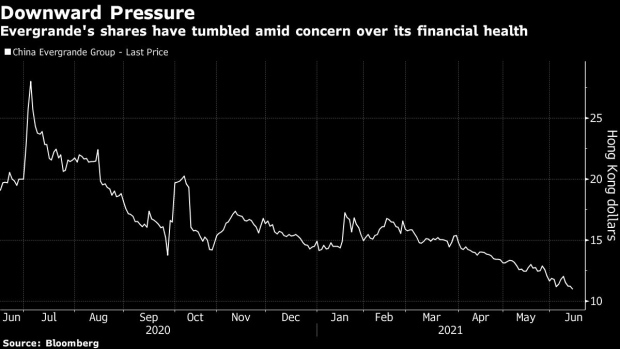Saudi Arabia Is Making a High-Risk $1 Trillion Bet on Tourism
The kingdom must overcome a conservative image and concern about human rights. Visit the desert oasis town of AlUla to understand the challenge.
Latest Videos
The information you requested is not available at this time, please check back again soon.
The kingdom must overcome a conservative image and concern about human rights. Visit the desert oasis town of AlUla to understand the challenge.

Jury selection was completed Friday for Donald Trump’s first criminal trial, setting the stage for opening arguments Monday in a New York case accusing the former president of falsifying business records to conceal a sex scandal before the 2016 election.

Higher-than-expected interest rates amid persistent inflation are perceived as the biggest threat to financial stability among market participants and observers, according to the Federal Reserve.

Fifth Third Bancorp jumped the most in four months, leading bank stocks higher, with Chief Executive Officer Tim Spence predicting that income from lending has bottomed out.

China’s securities regulator said it will encourage the nation’s companies to list in Hong Kong as it unveiled a package of measures to bolster the city’s position as an international financial hub.
Jun 15, 2021
, Bloomberg News

(Bloomberg) -- China Evergrande Group’s favored tactic to squeeze bearish speculators is to repurchase shares, mopping up liquidity in the stock and driving up its price. Unfortunately for the company and its billionaire founder, that strategy is about to hit a wall.
The property developer’s stock free float -- or the amount of shares readily available for trading -- will fall to 23.02% of the issued stock after Friday’s buyback, according to data compiled by Bloomberg. It’s approaching the 22.04% free-float minimum requirement for Evergrande, as part of Hong Kong stock exchange rules aimed at avoiding stagnant trading. Chairman Hui Ka Yan owns almost 77% of the outstanding stock through companies controlled either by him or his wife, according to the company’s 2020 annual report.
That means Evergrande only has 166 million shares left it can buy back. As a comparison, the company purchased 46 million shares since June 7 as the stock plunged. More than 16% of the free float is held short, according to IHS Markit Ltd., and traders would need about 17 days to close out their bearish positions.
Concern over the future of the world’s most indebted developer has grown in recent week after affiliates missed payments and Caixin Media’s WeNews reported that regulators are probing Evergrande’s ties to Shengjing Bank Co. in northern China. The stock has plunged about 60% from last year’s high, while a key dollar bond is near its lowest level since April 2020.
The selloff worsened on Tuesday after WeNews said in a new report that a local government discussed with Evergrande about paring its stake in Shengjing Bank and the banking watchdog said it would curb a key source of financing for developers to control risk.
The dwindling free float will make it hard for the company to repeat its success four years ago, when the company spent billions on a buyback spree. The shares ended that year with a 458% gain, making it the top performer on the 485-member Hang Seng Composite Index and crushing short sellers.
The company has spent about HK$529 million ($68 million) on buybacks since June 7 to combat increasing bets against its stock. As of June 11, it had yet to cancel those shares. The buyback period could last 15 to 20 days, JPMorgan Chase & Co. analysts predicted in a recent note where they upgraded Evergrande shares to the equivalent of buy.
At its June 11 general meeting, Evergrande proposed renewing its buyback and share issue programs for another year. The former allows the company to repurchase a maximum of 10% of outstanding shares, and the latter allows for a 20% increase.
The plunge in the shares has hurt the wealth of founder Hui. At $19 billion, Hui’s net worth has tumbled by about a third since he struck a deal with investors to avert a cash crunch in September. It’s down by more than half from a 2020 peak, according to the Bloomberg Billionaires Index.
The stock closed 2.5% down on Tuesday at its lowest level since March last year.
©2021 Bloomberg L.P.